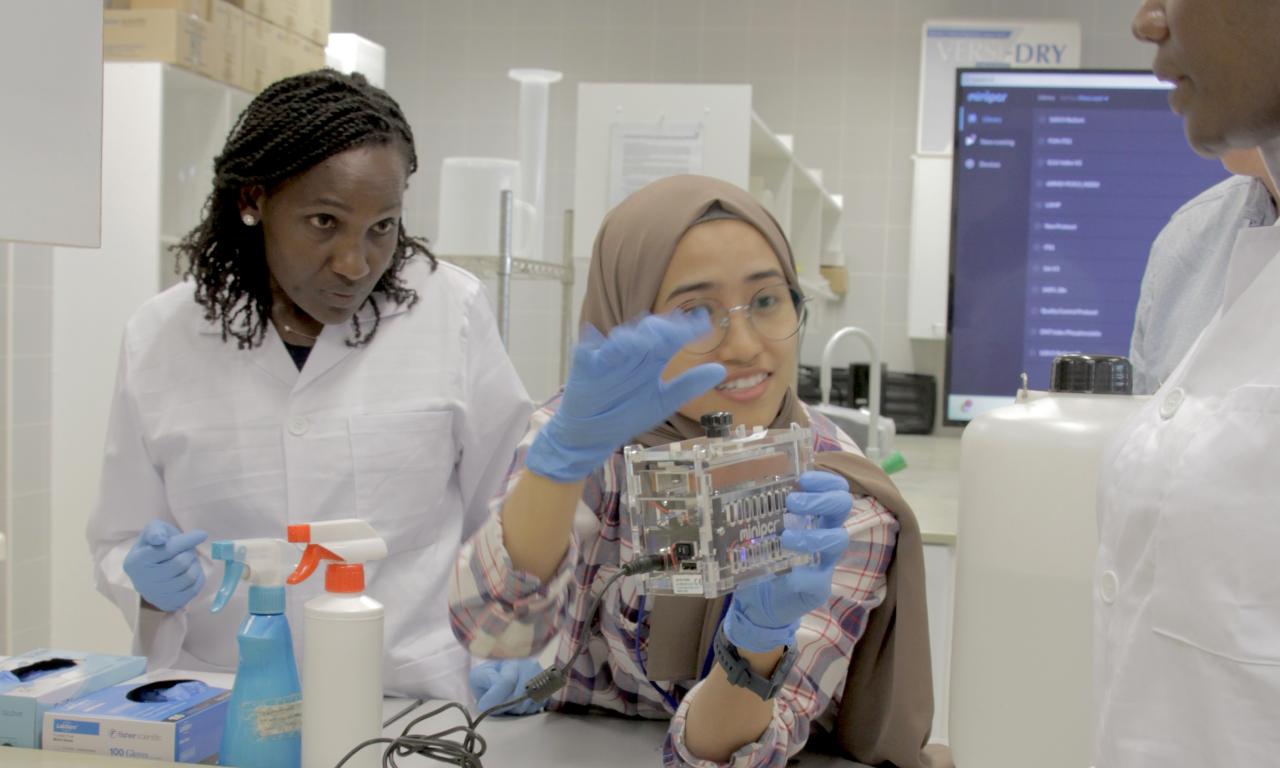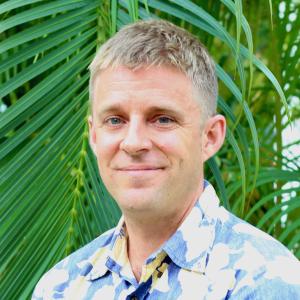
Aquaculture is a lifeline for many communities in Sub-Saharan Africa, providing food security and income. But it’s not without its challenges. Diseases can wipe out entire stocks, and the lack of access to scientific knowledge and technology can make managing these risks difficult.
A recent hands-on laboratory training session in partnership with Patriot Biotech under the NORAD-funded AHA project "Increased Sustainability in the Aquaculture Sector in Sub-Saharan Africa, through Improved Aquatic Animal Health Management”, focused on practical skills and cutting-edge knowledge in diagnostics for improved aquatic animal health management.
Held at WorldFish’s headquarters in Penang, Malaysia, this training contributed to the broader project goal of boosting the sustainability and resilience of aquaculture in Africa.
Molecular Techniques for Early Detection
The training focused on molecular diagnostics, with participants learning advanced techniques such as DNA extraction, primer design, PCR amplification, DNA sequencing, and the analysis and interpretation of sequence data analysis. These tools can play a significant role in the early detection of fish diseases, which can mean the difference between a contained outbreak and devastating losses for farmers.
“The molecular diagnostic training will be very helpful, especially in assisting the farming communities to identify their aquatic animal's health problems early. In Kenya, farmers can experience abnormal mortalities. This could be a way to solve those issues by identifying pathogens accurately, informing treatment, and developing strategies to manage them in the field.” - Mercy Hamisi, master’s student, University of Nairobi.
The training also covered modern sequencing techniques, with participants learning how to process raw samples from DNA extraction to sequence data analysis. These methods can be applied in real situations to help safeguard their local aquaculture industries.
“I'm privileged to have been here for the one-week training, and I look forward to sharing the knowledge gained with my community, from undergraduate to postgraduate students, and contributing to research in my department,” - Nichodemus Mutinda Kamuti, PhD student from the University of Nairobi.
Practical lab work was a key element of the training. Participants will be able to apply what they have learned in real-world settings, engaging with farmers experiencing disease challenges with their farmed organisms, with sample collection, processing, and lab diagnostic techniques in situations that mirror the challenges they face back home. This hands-on experience reinforced the theory, equipping the participants with actionable skills they can use in their careers.
“In Ghana, a fish disease outbreak can lead to significant fish mortality, impacting economic activity, food safety, and food security. Developing skills in molecular techniques and sequencing will be valuable for disease surveillance and aquatic management. I’m really impressed by this training session and plan to implement these practices in my country” – Erica Ofosuah, Duah – PhD student, University of Ghana.
Building Knowledge and Sharing Skills
This training was a critical step in a larger effort to strengthen aquatic animal health management in aquaculture across Sub-Saharan Africa. The AHA project, under which this training falls, is committed to building a sustainable future for aquaculture by focusing on research, education, and networking. The goal is to ensure that aquaculture in Africa remains resilient in the face of challenges like disease outbreaks, while also creating new opportunities for economic growth.
"In my field, we commonly use molecular tools for diagnostics in research. Through this training, I've learned a lot and discovered that generating extensive data from a simple sample in just 24-48 hours is possible. I believe I’ll be able to utilize the nanopore sequencing platform in my research, especially in studying infectious pathogens. This will greatly support my work, potentially enabling me to build an internal database of pathogenic organisms to aid in future outbreak identification." – Angela Naa Amerley, Ayiku – Postdoctoral fellow, University of Ghana, Molecular and Cell Biology Department.
“I'm so happy and privileged to have gotten the opportunity to train here. As an early-career researcher, I’m keen on transferring these modern technologies back to Africa. I’ll share what I’ve learned with my community, from undergraduate to postgraduate students, and integrate it into diagnostic services and research.” – Ann, Kangai, Munene-Kairemia – Assistant Chief Technologist from the University of Nairobi.
With continued investment in education, research, and collaboration, the aquaculture sector in Sub-Saharan Africa is positioned for steady growth, addressing both food security and economic development. The work done through this project will have a lasting impact, with trained professionals leading the way in improving aquaculture practices across the region.

